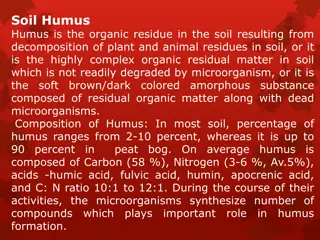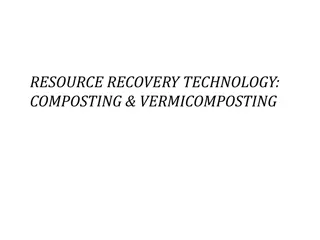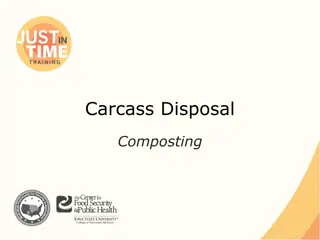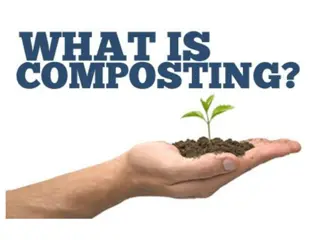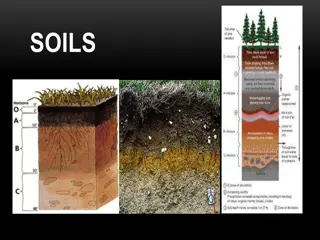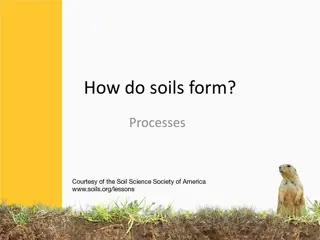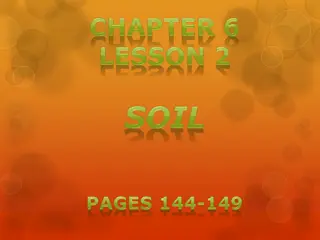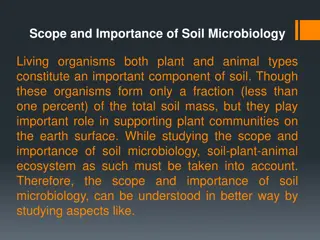Understanding the Importance of Humus in Soil Health
Humus, the organic residue in soil, plays a crucial role in soil fertility and plant growth. It improves soil structure, retains water, stores essential nutrients, and promotes microbial activity. Factors like soil fertility, moisture, temperature, and pH influence the distribution and activity of s
0 views • 21 slides
Understanding Composting and Vermicomposting Technology
Composting and vermicomposting are controlled decomposition processes of organic materials, with aerobic microbes breaking down the matter in the presence of oxygen. Aerobic composting produces stable humus and helps eliminate pathogens and weed seeds. The processes involve microbial respiration, ga
1 views • 29 slides
Effective Carcass Disposal Through Composting
Composting carcasses with organic materials can accelerate biological decomposition, destroy pathogens, and produce a nutrient-rich humus. Proper carbon-to-nitrogen ratios, moisture levels, oxygen maintenance, and temperature control are crucial for the efficiency of the composting process. Mixing a
0 views • 21 slides
Understanding the Fundamentals of Composting
Compost is organic matter decomposed into a valuable fertilizer and soil amendment. The process involves aerobic decomposition of waste material, turning it into nutrient-rich humus. Composting requires a mix of organic matter, water, air, and proper carbon:nitrogen ratio for efficient breakdown. Th
0 views • 21 slides
Understanding Soil: Formation, Composition, and Impact on Plant Growth
Soil is more than just dirt; it plays a vital role in supporting plant growth. Formed through the weathering of rocks and organic activity, soil consists of rock fragments, clay, and organic material. The process of soil formation begins with the erosion of bedrock, leading to the development of dif
0 views • 12 slides
Understanding Soil Formation Processes and Changes Over Time
Soil formation involves several processes such as additions, losses, translocations, and transformations. Additions like rainwater and organic matter, losses from evaporation and leaching, translocations by gravity and organisms, and transformations of components all contribute to the development an
0 views • 10 slides
Exploring the Fascinating World of Soil: An Insightful Journey
Delve into the intricate composition of soil through a hand lens to uncover rocks, minerals, and humus. Discover the hidden elements like water, air, and living organisms that form the foundation of soil. Witness the decomposition process by bacteria and fungi, and explore the layers of a soil profi
0 views • 15 slides
Understanding the Importance of Soil Systems
Soils play a vital role in the Earth's ecosystems by forming at the interface of various elements like the atmosphere, lithosphere, biosphere, and hydrosphere. They consist of weathered bedrock, organic matter, air, and water, making them essential for sustaining life. Soil interactions with differe
0 views • 36 slides
Understanding the Scope and Importance of Soil Microbiology in Ecosystems
Soil microbiology plays a significant role in supporting plant communities and maintaining soil health. Living organisms, both plant and animal types, form only a small fraction of soil mass but are crucial for processes like plant growth, organic matter decomposition, humus formation, and biogeoche
0 views • 14 slides
